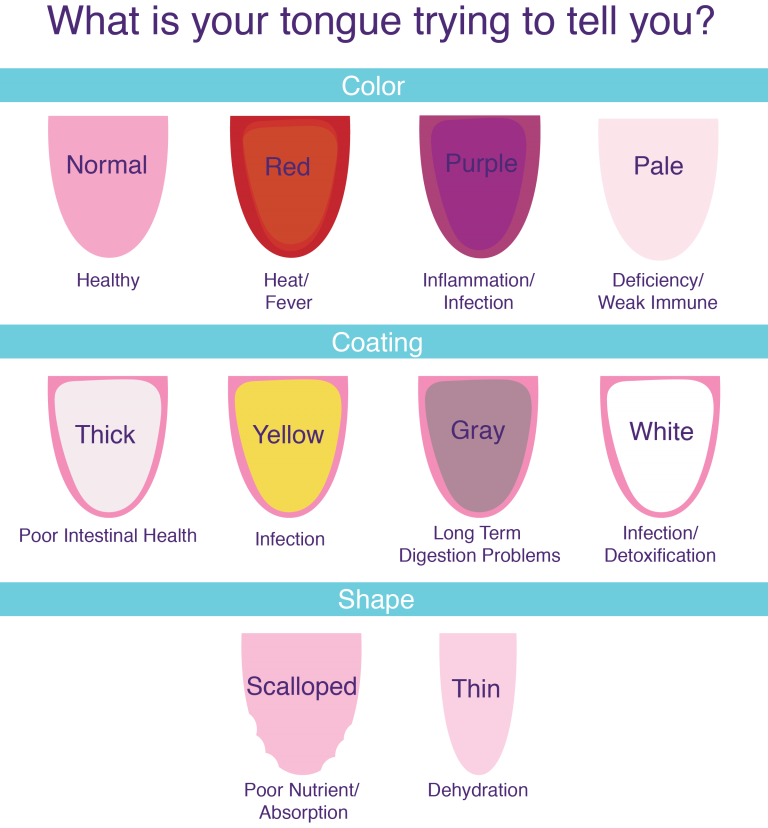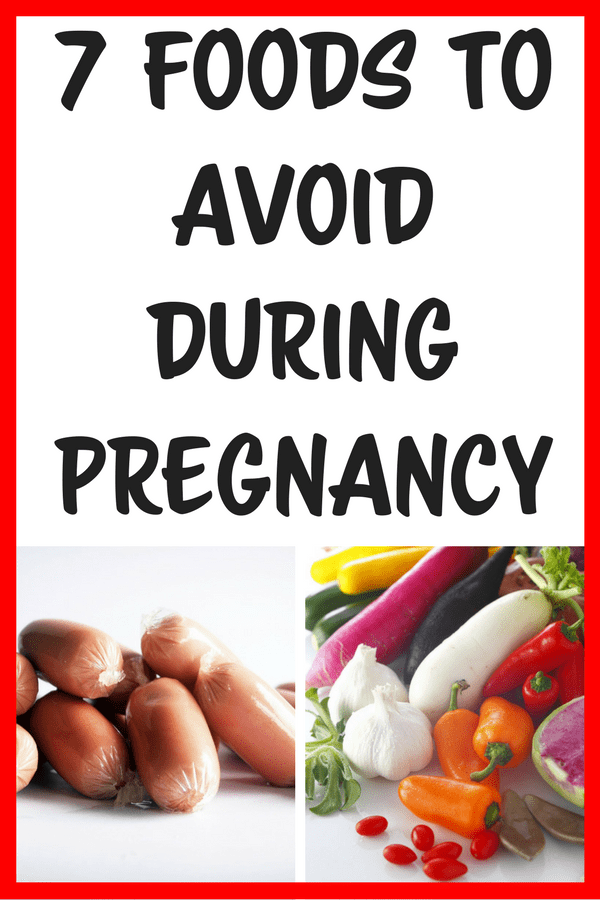Can you have a miscarriage on your period
Bleeding, Clots, Timing, and Other Signs
Miscarriage is fairly common in the first trimester. It happens in about 10 percent of known pregnancies.
In some cases, miscarriage can occur before you know you’re pregnant. If this happens, you might not notice anything different from your usual period.
The further along you are in a pregnancy, the less likely it is that a miscarriage will feel like a period.
Continue reading to learn more about early miscarriage, including specific symptoms to watch for, when you should see a doctor, and more.
The most common symptoms of early miscarriage are cramping and bleeding.
However, spotting or light bleeding during early pregnancy aren’t always a sign of miscarriage. If this happens, watch for any other unusual symptoms.
Other symptoms of miscarriage
- cramping in your abdomen or lower back (This could start out like period cramps, but the pain typically worsens over time.)
- nausea
- diarrhea
- passing fluids, larger-than-normal blood clots, or tissue from your vagina
Timing
A miscarriage can happen any time after fertilization. If you didn’t know you were pregnant, it would be easy to mistake it for a period.
Both a period and a miscarriage can cause spotting to heavy bleeding.
After the first eight weeks or so, it’s less likely that you’ll mistake a miscarriage for a period.
Duration
You know how long and heavy your typical period is.
During a miscarriage, bleeding gets heavier and lasts longer than a period.
As your cervix starts to dilate, cramping may become more painful than typical period cramping.
Characteristics
Bleeding during miscarriage can appear brown and resemble coffee grounds. Or it can be pink to bright red.
It can alternate between light and heavy or even stop temporarily before starting up again.
If you miscarry before you’re eight weeks pregnant, it might look the same as a heavy period. Later, you’re more likely to notice fetal or placental tissue.
Menstruation products
Heavy bleeding, pieces of tissue, or large blood clots on your menstruation products could mean that you’re having more than a heavy period.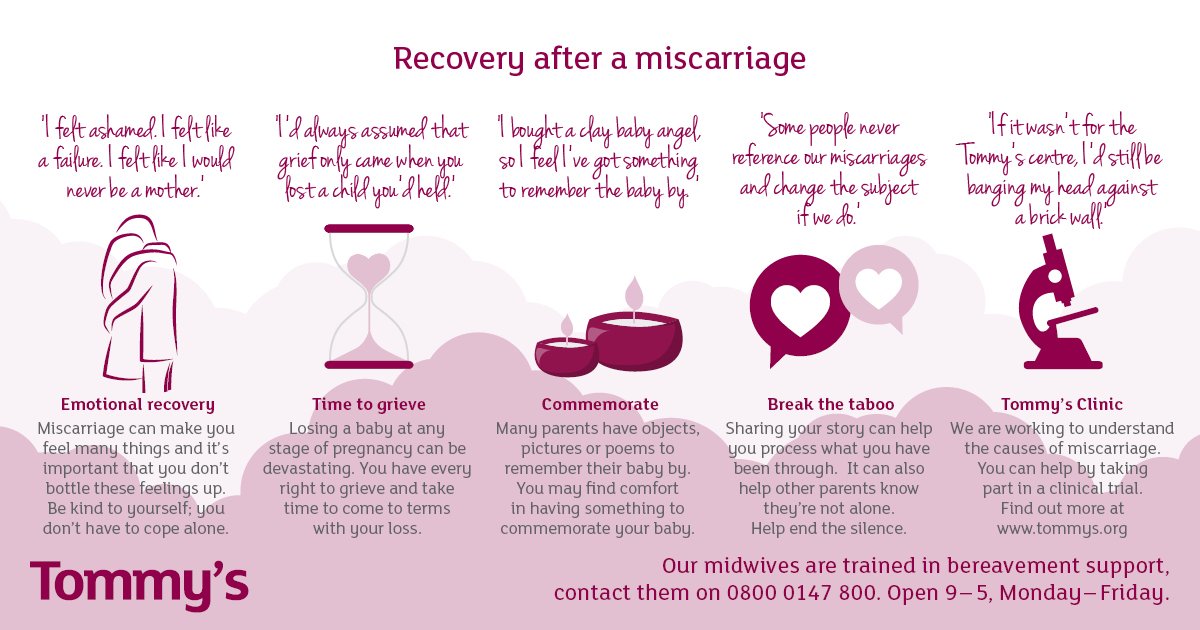
See a doctor if you’re soaking through a tampon or pad every hour for more than two consecutive hours.
You should call a doctor or other healthcare provider any time you experience unexpected pain or excessive bleeding.
These symptoms can result from an ectopic pregnancy. This occurs when a fertilized egg has implanted outside the uterus, possibly inside a fallopian tube. It’s a medical emergency.
You should also call a doctor if you experience bleeding alongside:
- mucus
- tissue
- blood clots
- what feels like uterine contractions
If you believe you’re having a miscarriage, ask your doctor the following:
- Should I collect a sample of blood or tissue? (This isn’t always necessary.)
- Should I go to an emergency room or make an office appointment?
- Is it fine to drive myself, or do you recommend against it?
If it appears that you’ve had a miscarriage, your doctor will want to perform a physical exam.
Be sure to discuss all your symptoms, including the amount of:
- bleeding
- clotting
- pain
- any tissue that may have been expelled
Testing may include:
- an ultrasound to check the uterus for signs of an embryo or a heartbeat
- a blood test to check for human chorionic gonadotropin (hCG), a substance that indicates pregnancy
There’s no way to stop a miscarriage in progress. If your doctor determines that you’ve experienced a miscarriage, they’ll want to check for:
- signs of infection
- uncontrollable bleeding
- tissue that may be left in your uterus
It can take two weeks or more to completely expel the tissue naturally. Your doctor will review with you typical bleeding patterns to expect. If you have heavy bleeding lasting several days or any signs of infection, you may need medical treatment.
If your doctor isn’t sure that all of the pregnancy tissue has been cleared from your uterus, they may order an ultrasound to confirm.
Your doctor can prescribe medication, such as misoprostol (Cytotec), to increase uterine contractions to help you expel the tissue.
You’ll experience cramping and bleeding as you pass tissue and blood.
Most people pass the tissue within 24 hours after taking the drug. For others, it can take a few days to complete. Either way, it doesn’t require a hospital stay.
Your doctor may be able to prescribe pain medication to help ease your symptoms.
If your blood type is Rh negative, you’ll need an injection of Rh immunoglobulin. This may help prevent complications in a future pregnancy.
There are also a few surgical options to remove tissue from the uterus. This includes:
- Vacuum aspiration. Your doctor inserts a thin tube that contains a suction device into your uterus. This can be done with local anesthesia in your doctor’s office.
- Dilation and curettage (D&C). Your doctor dilates your cervix, and then uses an instrument called a curette to scrape your uterine lining.
 This can be done at a surgical center or operating room on an outpatient basis. Regional or general anesthesia can be used.
This can be done at a surgical center or operating room on an outpatient basis. Regional or general anesthesia can be used.
Both of these treatments have been well-studied and are considered safe. They each carry a very small risk of serious complications.
If you’ve experienced a miscarriage, it’s important to understand that it isn’t your fault.
In many cases, doctors are unable determine the cause. Here are some things that can contribute to miscarriage:
During the first trimester
As many as 80 percent of miscarriages occur in the first trimester.
When a miscarriage occurs in the first five weeks after fertilization, it’s called a “chemical pregnancy.” It’s so early that you might not have known you were pregnant.
Although your period may seem heavier than usual, there might not be any other noticeable sign of miscarriage.
Miscarriages in the first trimester often have to do with chromosome abnormalities that interfere with normal development. Missing or extra chromosomes are linked to 50 percent of all miscarriages.
Missing or extra chromosomes are linked to 50 percent of all miscarriages.
Sometimes, a fertilized egg simply doesn’t develop into an embryo (blighted ovum).
It may help to know that having sex, exercising, morning sickness, and previous use of oral contraceptives don’t cause miscarriage. Even an accidental fall doesn’t necessarily cause it.
According to the American College of Obstetricians and Gynecologists (ACOG), smoking and alcohol consumption in the first trimester may result in a slightly higher risk of miscarriage. But the research on this is mixed.
It’s also worth noting that drinking less than 200 milligrams of caffeine per day doesn’t appear to increase the risk of miscarriage.
Some things that may increase the risk of early miscarriage are:
- fibroids or other abnormalities of the uterus
- hyperthyroidism or hypothyroidism
- uncontrolled diabetes
- use of cocaine or similar drugs
During the second trimester
About 2 to 3 percent of miscarriages occur during the second trimester.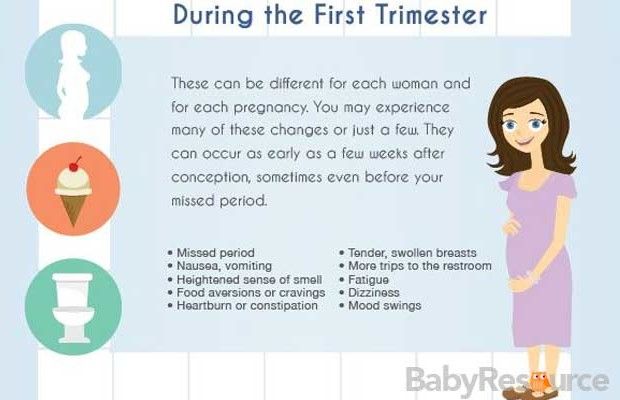
Some things that may increase the risk are:
- conditions that can cause blood clots
- early preeclampsia or eclampsia
- fetal abnormalities
- fibroids or other abnormalities of the uterus
- infection of the uterus
- lupus
- prior surgery of the cervix
- trauma
- uncontrolled diabetes
- hyperthyroidism or hypothyroidism
- high blood pressure
- use of cocaine or similar drugs
During the third trimester
Losing a pregnancy starting from the 20th week of pregnancy and into the third trimester is considered stillbirth, not miscarriage.
In general, the risk of stillbirth increases with maternal age.
If you’ve experienced a miscarriage, it doesn’t mean you’ll have another, and it doesn’t mean you can’t have children.
Most people who experience a miscarriage can go on to have a successful pregnancy.
Miscarriage shouldn’t affect your ability to get pregnant.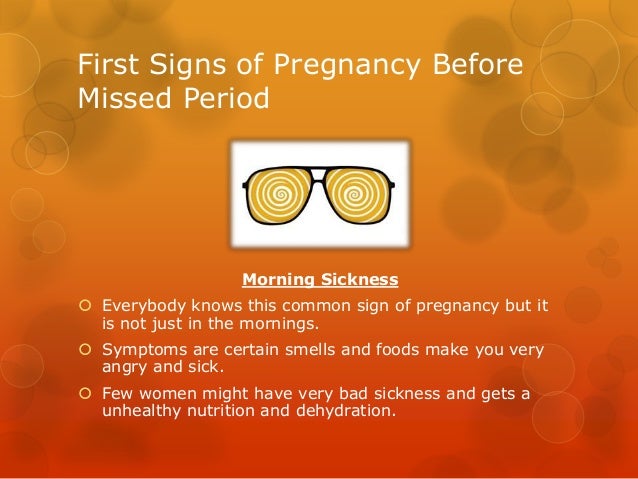 You can ovulate and become pregnant within two weeks of an early miscarriage.
You can ovulate and become pregnant within two weeks of an early miscarriage.
If you don’t want to become pregnant again, you should use birth control right away.
About 1 percent of people have multiple miscarriages. If you’ve experienced several miscarriages, your doctor might recommend special testing.
Even if you’ve had three miscarriages in a row, there’s a 70 percent chance your next pregnancy will be successful.
Your doctor will probably advise you to avoid sex, tampons, and douches for two weeks. This will help prevent infection.
They may also want you to take a pregnancy test after about two weeks. This can help them determine whether your hormone levels are back to normal.
In the meantime, call your doctor if you:
- are bleeding heavier than expected or notice that the blood stays bright red
- are soaking through more than two maxi pads an hour for more than two hours
- notice a foul-smelling discharge
- experience abdominal tenderness or severe pain
- have persistent cramping
- develop a fever or chills
For the first few days, you may notice blood clots and tissue passing, but this should taper off after about a week. It will take about four to eight weeks for your regular period to return.
It will take about four to eight weeks for your regular period to return.
Mild exercise following an early miscarriage is usually fine, but check with your doctor. It may depend on how far along you were, as well as your overall health.
There are many emotions a person might have following a miscarriage. Some feel anger, sadness, or profound loss. Others might feel relieved.
These feelings may have to do with whether you knew you were pregnant or if you were trying to have a baby.
Pregnancy and miscarriage also cause hormone fluctuations, which can affect your emotions.
Everyone is different, so there’s no correct way to feel about experiencing a miscarriage. It may take some time for you to process everything.
You may find it helpful to talk to your partner, family, or friends about what you’re going through.
You may also consider looking into support groups for people who have experienced miscarriage. Sometimes it helps to talk to others who have been through the same thing.
Here are a few places to seek support:
- your doctor’s office or local hospital for referrals to support services
- clergy
- Compassionate Friends, which has a searchable database of local chapters
- March of Dimes Loss and Grief Forum
- Share Pregnancy & Infant Loss Support which offers online support and information on how to find local groups
If grief continues to worsen after a few weeks, talk to a doctor about your options for treatment. You may benefit from grief counseling or treatment for depression.
Miscarriage isn’t your fault.
Physical recovery generally takes a few weeks. Everyone has their own timetable for emotional recovery.
There’s no need to rush yourself or to pretend to “get over it” for anyone else’s sake.
And if you need it, reaching out for support is a reasonable thing to do. You aren’t alone in this.
Am I having a miscarriage?
This article is also available in: Português (PT), Español (ES), Deutsch (DE), Français (FR)
Article was originally published on Nov. 7, 2017 and updated on June 6, 2019.
7, 2017 and updated on June 6, 2019.
It can be stressful when your period is later than expected. Although menstrual cycle length can vary, some people may worry that their late period is actually a very early miscarriage (also known as a spontaneous abortion).
Abortion
What to expect during an abortion
If you have access to a legal abortion, here is what to...
by Hannah Reiser, OBGYN
Miscarriage, or the loss of a pregnancy in the first 20 weeks (1), is common. At least 1 in 3 pregnancies end in a miscarriage (2), though people do not always know that they were pregnant when miscarriage occurs. Sometimes the egg implants only for a short period of time, and then the pregnancy ends. Most people would not know they were pregnant in this scenario. About 1 in 5 clinically recognized pregnancies (pregnancies recognized with a positive pregnancy test), end in miscarriage (2, 3).
Miscarriages are most common in the first six weeks of pregnancy, becoming less likely as the pregnancy develops (2,3).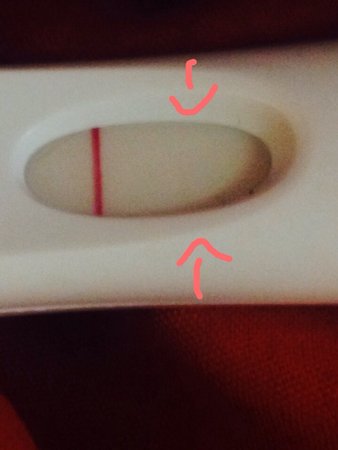 If a pregnancy loss happens, it’s most likely in the first trimester (the first 13 weeks by gestational age) (4).
If a pregnancy loss happens, it’s most likely in the first trimester (the first 13 weeks by gestational age) (4).
When a miscarriage occurs before a person knows that they are pregnant, it may be difficult to tell the difference between a normal menstrual period and miscarriage.
Symptoms of both menstrual periods
and miscarriage can include (1, 4-7):If you are experiencing a
miscarriage, someone may also notice:Reduction in or disappearance of pregnancy symptoms like nausea, vomiting, or sore breasts (5)
Signs of being sick, like a fever (if the miscarriage is caused by an infection) (5,6)
If you get your period less than 2 weeks after your period is expected, it is difficult to know whether it is a late period or a miscarriage. Miscarriages in this time frame are not usually experienced with heavier or longer bleeding (7). People who miscarry in less than or equal to two weeks after an expected period are likely to experience bleeding similar to a period (7). There may be about half a day more of bleeding than the typical period (7).
There may be about half a day more of bleeding than the typical period (7).
Download Clue to track your period and bleeding.
App StorePlay Store
It is unlikely that a single early miscarriage occurring before it’s even detected has implications for long-term fertility. Early miscarriages are common and many people who experience these types of miscarriages don’t know they miscarried at all.
Although miscarriages that happen around the time of a period don’t represent a threat to a person’s health, people may be concerned about their chance to have healthy pregnancies in the future. But people who miscarry, even later into pregnancy and multiple times, can go on to have healthy pregnancies in the future (2, 6, 8).
If you’re unsure about whether or not you might be pregnant and want to know if your bleeding is a miscarriage or a normal period, take a pregnancy test or visit your healthcare provider.
If you have a late period, are trying to get pregnant, or are worried you are pregnant, and you’re unsure if you should take a pregnancy test, consider your risk of pregnancy:
For people with typical cycles (the number of days between periods rarely varies by more than a couple days):You are at risk of pregnancy if you had unprotected penis-in-vagina sex or had a high risk of sperm touching your genitals. The risk varies over the course of your cycle. Find out here if you are unsure about how you can get pregnant.
Sperm exposure poses the highest risk of pregnancy from around the middle of the cycle to about 2 weeks before your anticipated period, because this is when most people ovulate. This is only true in general, and it might not be reflective of any given cycle, so you shouldn’t rely on this rough estimate for pregnancy prevention.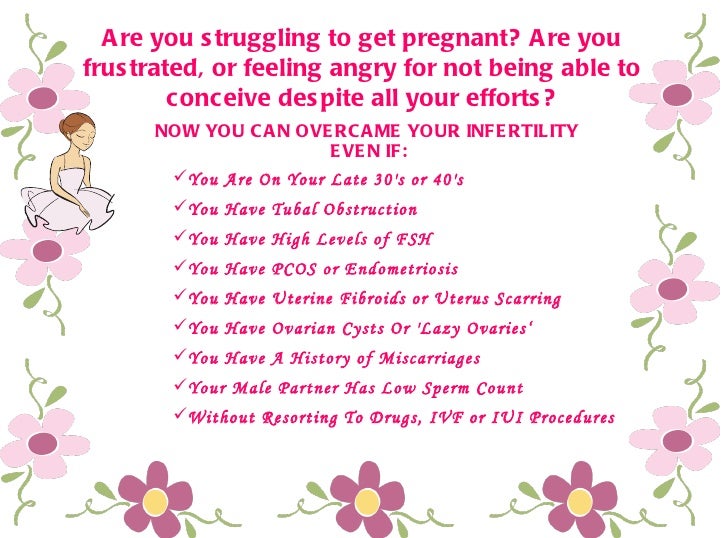
(Note that the ovulation day displayed in Clue is only an estimate — your actual day of ovulation might have different timing, which can vary cycle-to-cycle along with the start date of your period)
Sperm exposure towards the beginning or the end of the cycle in general poses less risk of pregnancy, because it’s less likely that a person ovulated close to or during those times.
Take a pregnancy test or contact your healthcare provider if your period is nine or more days late.
If you want to take a pregnancy test sooner, wait at least two weeks after your estimated ovulation day, or around when you expect to get your period. For the most accurate results, wait a few days after your expected period. Some pregnancy tests advertise that you can take them earlier than that, but the earlier you take a test the less accurate it is (9). It’s up to you if you want to take it sooner.
If you have an unpredictable cycle (you don’t know when your period is going to come, and the difference between your longest cycle and shortest cycle is more than 7–9 days):Unprotected sex or exposure of sperm on your genitals at most times represents a higher risk because it’s harder to estimate when in your cycle you were ovulating. You can take a pregnancy test about two weeks after your last unprotected sexual encounter, though waiting a few days longer will help improve the accuracy of the results.
You can take a pregnancy test about two weeks after your last unprotected sexual encounter, though waiting a few days longer will help improve the accuracy of the results.
(We talk more about how pregnancy tests work here.)
If you are using an active form of natural birth control (fertility awareness-based methods or natural family planning) or are tracking fertility signs for body literacy, you will have a better idea of the timing of your ovulation and can use that to assess your risk of pregnancy.
(Remember, any form of unprotected sex at any time represents a risk of sexually transmitted infections)
If you know you are pregnant and begin bleeding:It is important to contact your healthcare provider. Bleeding during early pregnancy is common and isn’t necessarily a sign of a miscarriage (10), but it’s good to let them know what’s going on.
If you experience abnormal bleeding, severe pain from your pelvis to your shoulders, and are feeling weak or are fainting, you should seek medical care immediately (11)
These could be signs of an ectopic pregnancy (when a fertilized egg attaches and grows somewhere other than the uterus, most commonly in the fallopian tube) (11).
Ectopic pregnancies are life-threatening and should be treated as medical emergencies.
Miscarriage
What to expect after a miscarriage
Miscarriage is a common pregnancy outcome, but that doesn’t make it any...
by Sarah Toler, DNP, CNM
How to tell the difference between a period and a miscarriageSometimes, it’s impossible to tell the difference in the symptoms between a late period and an early miscarriage. Taking a pregnancy test may tell you if you were pregnant, but it might not. The best way to prevent pregnancy is to use some form of birth control. This includes both hormonal birth control and non-hormonal birth control methods.
Download Clue to track your cycle or your pregnancy.
Menstruation during pregnancy - maternity hospital "Leleka"
Young women often wonder if pregnancy and menstruation can happen at the same time. Indeed, during pregnancy, some women experience spotting, which is mistaken for menstruation. But it's not.
Indeed, during pregnancy, some women experience spotting, which is mistaken for menstruation. But it's not.
There can be no full menstruation during pregnancy. The endometrium, the layer of cells that lines the inside of the uterus and is shed during menstruation, helps the placenta develop during pregnancy and stays in the body. The cycle of monthly renewal of the endometrium during pregnancy stops.
However, spotting during pregnancy is not uncommon. Their appearance indicates that there are some malfunctions or pathological conditions in the woman's body. It can be a hormonal imbalance, a threatened miscarriage, and even an ectopic pregnancy.
Unfortunately, many young women underestimate this symptom, believing that periods during pregnancy are possible, and do not worry about discharge. They do not go to the doctor until the situation becomes critical. And in some cases, a timely reaction can save not only the unborn child, but also the life of the mother.
What causes bleeding during pregnancy
In order to understand how menstruation can start during pregnancy and what should be done, let's turn to the processes that occur in the body of a pregnant woman.
During intercourse, semen enters the vagina and then into the uterus. But fertilization may not occur immediately: spermatozoa remain active for three days. After the sex cells fuse, the fertilized egg attaches itself to the wall of the uterus. This, too, may not happen immediately, but within a few days. If these processes are delayed in time, the usual regular menstruation may begin. In this case, the egg will be fixed in the uterus, the pregnancy will develop normally. A pregnancy test will show a positive result. Alas, this rarely happens. More often, spotting is an alarming symptom.
Pregnancy and early periods
In some cases, the fertilized egg does not implant in the uterus, but in the fallopian tube or outside the genitals. An ectopic pregnancy develops - a severe pathology that poses a serious threat to the life of the mother and excludes a favorable outcome for the fetus. In an ectopic pregnancy, spotting may indicate a ruptured fallopian tube. The walls of the fallopian tubes are only 2-3 mm thick, they are inelastic. If an embryo develops and grows in the tube, the wall breaks, internal bleeding begins. This usually happens within 3-4 weeks. In this situation, urgent surgical intervention is necessary.
An ectopic pregnancy develops - a severe pathology that poses a serious threat to the life of the mother and excludes a favorable outcome for the fetus. In an ectopic pregnancy, spotting may indicate a ruptured fallopian tube. The walls of the fallopian tubes are only 2-3 mm thick, they are inelastic. If an embryo develops and grows in the tube, the wall breaks, internal bleeding begins. This usually happens within 3-4 weeks. In this situation, urgent surgical intervention is necessary.
With detachment of the epithelium and the threat of miscarriage, characteristic discharge may also appear. This is possible with hormonal disruptions in the body of a woman. But sometimes spontaneous abortion occurs due to some internal failures that are almost impossible to predict in advance. If a young woman leads an unhealthy lifestyle - drinking alcohol, other toxic substances, or doing a lot of physical labor - this can increase the risk of spontaneous abortion. Allocations will just mean that the process of rejection of the embryo has begun.
Sometimes the cause of discharge is the death of one of the fetuses during a multiple pregnancy. If the pregnancy is multi-ovarian, that is, several eggs were fertilized, the development of other embryos can continue. But the risk of death of other embryos in this situation is quite high.
In some cases, the cause of the discharge is pathology or disease of the uterus. The egg does not manage to gain a foothold in the uterus successfully, especially if the uterus has pathologies or neoplasms. If the pregnancy develops normally, but the woman continues to have discharge similar to menstruation, this indicates a hormonal imbalance. Insufficient production of the necessary hormones is an alarming, but usually not a dangerous condition.
If menstruation starts during pregnancy, is there a chance to keep the baby?
Fortunately, the appearance of spotting does not mean termination of pregnancy. Of course, in the case of severe pathologies, such as an ectopic pregnancy, it will not be possible to save the fetus.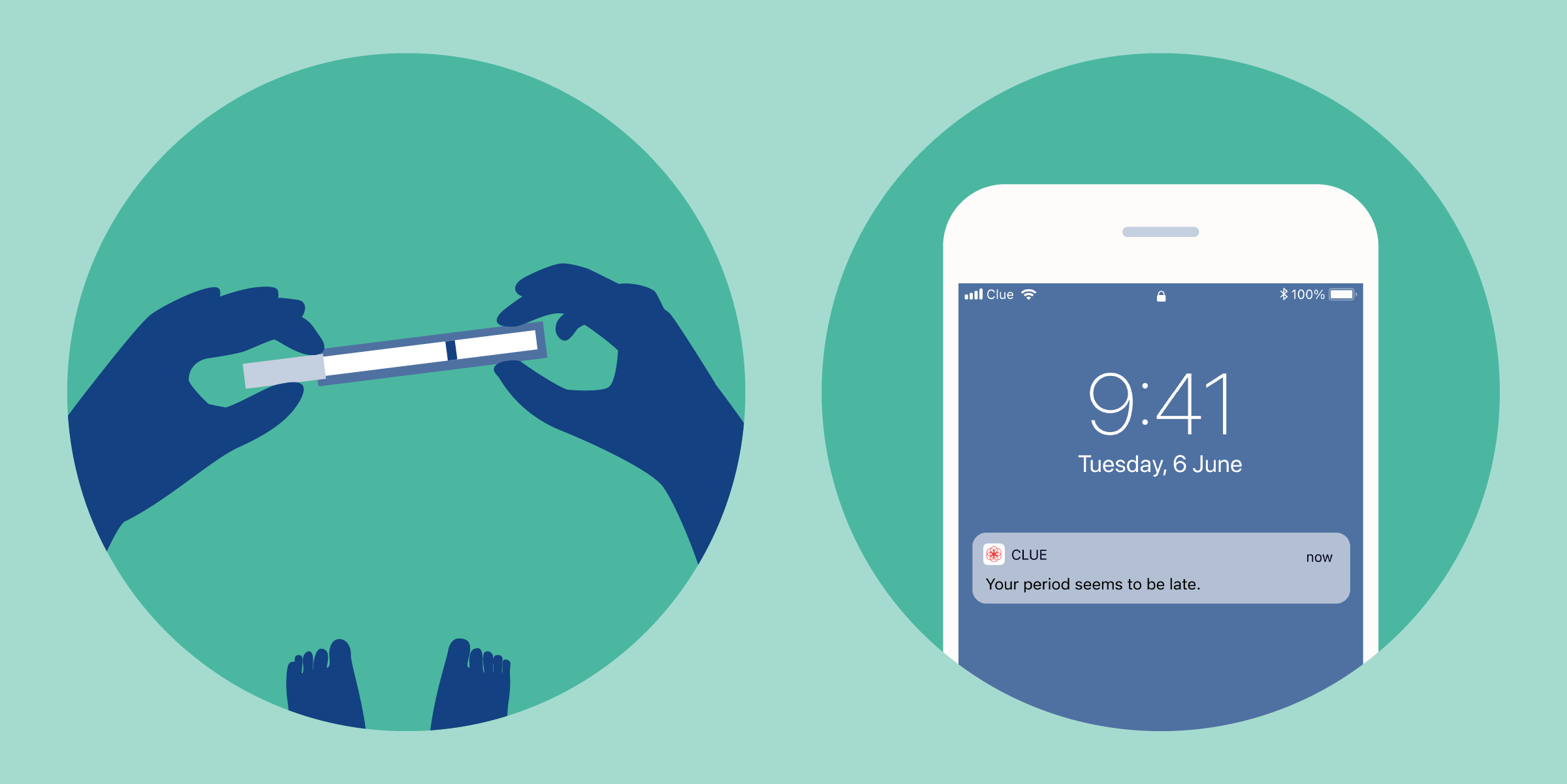 But if in all these cases you do not consult a doctor, the risk of losing a child, and in some cases, a mother, is very high.
But if in all these cases you do not consult a doctor, the risk of losing a child, and in some cases, a mother, is very high.
Early miscarriage help
- home /
- Blog /
- How to avoid early miscarriage
A miscarriage occurs when the fetus is shed from the endometrium, the inner lining of the uterus. According to experts, two out of 10 clinically established pregnancies end in spontaneous abortion. It is necessary to understand in more detail the causes, symptoms and methods of dealing with miscarriage.
How early miscarriage occurs
This process takes three consecutive steps. First, the fetus dies, after which it detaches from the endometrial layer. This is manifested by the fact that bleeding begins.
At the third stage, everything that has exfoliated is removed from the uterine cavity. The process may be complete or incomplete. In the early stages - five to six weeks - the process resembles ordinary menstruation. They are characterized by painful and much more unpleasant sensations. You can find out that it was just an early miscarriage by taking tests for the ratio of hCG in the blood.
The process may be complete or incomplete. In the early stages - five to six weeks - the process resembles ordinary menstruation. They are characterized by painful and much more unpleasant sensations. You can find out that it was just an early miscarriage by taking tests for the ratio of hCG in the blood.
Symptoms of a miscarriage
Signs of spontaneous abortion are abdominal cramps, cramps or bloody discharge. However, they do not always appear. It is necessary to note the most typical manifestations of the presented state and their main characteristics.
Temperature
For a short period of time, hyperthermia may well not be observed. Fever is not the most common symptom. In some cases, the thermometer readings really rise to 38 degrees or more.
At the same time, when hyperthermia is accompanied by a number of additional symptoms, a septic miscarriage is likely. These are its symptoms:
- severe pain in the abdomen and deep in the vagina;
- increase in the tone of the uterus, which is felt by shocks inside;
- pungent, pungent and unpleasant odour.
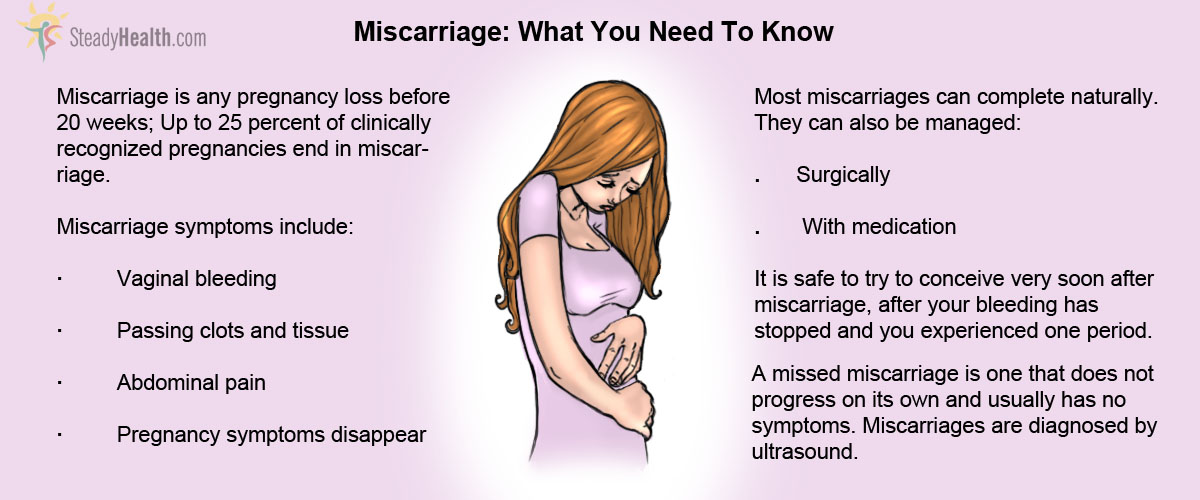
All this indicates that the infection has joined. In such a case, emergency hospitalization is strongly recommended to stop the development of the process. It is better not to engage in self-medication or the use of folk recipes.
Discharge
Early miscarriage can indeed be accompanied by discharge. They may be habitual, as during menstruation. Also, the discharge may be smearing, insignificant.
Secretion brown, scanty, much less likely to end in spontaneous abortion. Most often, this is indicated by abundant and bright red discharge. It is blood that normally appears when the fetus is rejected from the inner layer of the uterus.
Pain
The severity of unpleasant and specific sensations may differ from each other depending on the duration of pregnancy. Probably the accession of pain, similar to menstruation. Most often, a similar symptom indicates an early miscarriage - no more than six weeks.
Probably cramping pains in the abdomen, pulling in the back. Their strength can vary from subtle to much more pronounced. In the rarest cases, when the clinical picture is complicated by a long course, this leads to a state of shock.
Their strength can vary from subtle to much more pronounced. In the rarest cases, when the clinical picture is complicated by a long course, this leads to a state of shock.
Another typical manifestation of pain is discomfort in the back or abdomen. Only then are the discharges identified. A similar situation is most typical for spontaneous abortion at the seventh or eighth week of pregnancy.
Causes of miscarriage
The first factor is genetic abnormalities in the development of the fetus. It is they who most often lead to miscarriage in the early stages. Violations can be expressed in qualitative or quantitative failures in chromosomes. In this regard, the female body recognizes the defect, and therefore does not allow such a fetus to develop further. Most often, such rejection is noted in the third week of pregnancy.
The next reason that an early miscarriage has developed may be disturbances in the functioning of the endocrine gland. Hormones determine not only the success and regularity of the cycle, but also how well the fetus is attached to the mucous surface of the uterus.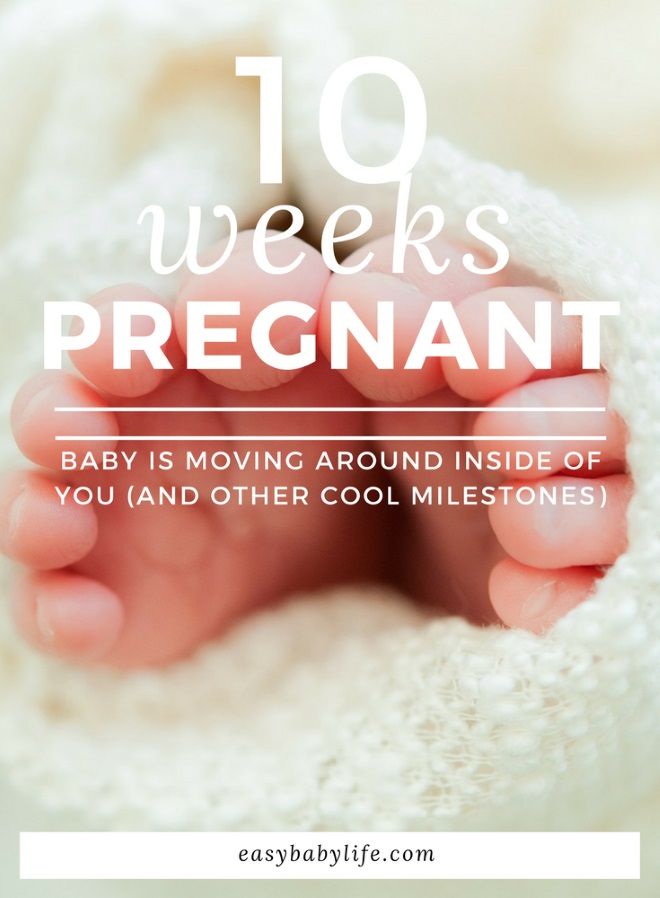 If, due to a malfunction of the thyroid gland, the endometrium is not able to provide the fetus with all the necessary components, the pregnancy will not go well. Most often, a miscarriage occurs at the beginning or at the end of the fourth week.
If, due to a malfunction of the thyroid gland, the endometrium is not able to provide the fetus with all the necessary components, the pregnancy will not go well. Most often, a miscarriage occurs at the beginning or at the end of the fourth week.
Other reasons why pregnancy is terminated:
- Rhesus conflict. If the parents have different Rh factors, then the risk that a miscarriage will occur after the first weeks of pregnancy increases significantly. This happens if a woman has a negative Rh, and the child has a positive, inherited from the father. In such a situation, the female body recognizes the fetus as a foreign object. Therefore, it is excreted from the uterus. Timely diagnosis allows you to save the child through full-fledged drug therapy.
- Sexually transmitted diseases, other infections. Similar problematic conditions also lead to spontaneous abortion. In this case, the embryo is infected at a very early stage. That is why the body will perceive it as a foreign object.
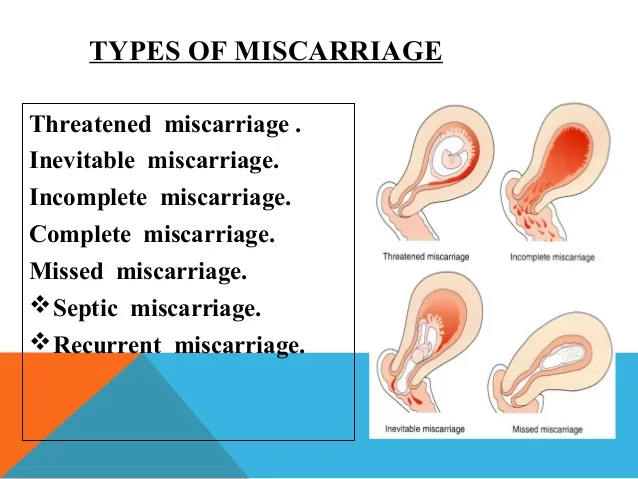 In this regard, a miscarriage will occur already in the fifth week.
In this regard, a miscarriage will occur already in the fifth week. - Previous abortions. Another common reason why a miscarriage occurred. Abortion is a huge stress for the reproductive system, which leads to thinning of the lining of the uterus. That is why the risk of miscarriage may be greater.
Abdominal injuries should not be excluded from the list. Sharp pressure on the peritoneum, including when lifting weights, can provoke an abortion. Also on the list are severe stress, anxiety and depression. Anything that violates the normal state of a woman can lead to serious consequences.
How to avoid miscarriage
The main goal of treatment is to relieve tension in the uterus. It will be equally important to stop the bleeding and prolong the pregnancy, but only on the condition that the fetus is viable. The sooner medical assistance is provided, the higher the likelihood of preserving the fetus, without the need to determine the expected timing of miscarriages.
Our specialists will help you with this. Only we have the most qualified and experienced doctors who know exactly how to treat even the most difficult cases. They will conduct a full diagnosis and prescribe the most effective, effective medicines.
Drug treatment
Hormonal drugs are used. They at an early stage determine the normal course of pregnancy. Medicines based on the hormone progesterone are effective.
- The use of hemostatic drugs. In the case of pregnant women, droppers are used with drugs such as Dicinon or Tranexam. They are needed to stop bleeding.
- Antispasmodics. Experts recommend injections of Drotaverin, followed by a switch to painkillers such as No-shpa. Papaverine suppositories, droppers with the addition of magnesia are also used. All of them are necessary in order to remove a number of signs of a pathological condition, namely, an increased tone of the uterus and pronounced pain.
- Use of Tocopherol. Vitamin E is an indispensable component for women, including pregnant women.
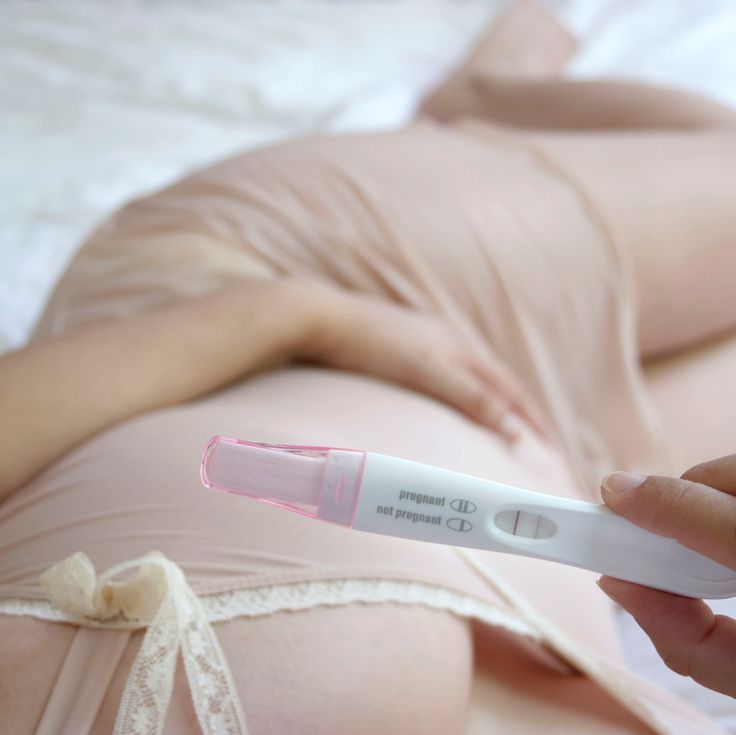 It ensures the normal and full functioning of the ovaries. Tocopherol also strengthens the vascular walls, eliminates the formation of blood clots.
It ensures the normal and full functioning of the ovaries. Tocopherol also strengthens the vascular walls, eliminates the formation of blood clots. - Sedative preparations. Use motherwort or valerian tincture. The presented measure is recommended for increased irritability or nervousness of a pregnant woman.
To prevent early miscarriage, the specialists of our clinic recommend glucocorticosteroids. Apply Dexamethasone or Metipred. They are prescribed to patients with diagnosed immune disorders that can lead to early termination of pregnancy.
A special relief ring can be fitted as an option. The presented procedure is carried out in the second trimester, or rather after the 20th week of gestation.
Remove such a device not earlier than 38 weeks. It is necessary for a woman to maintain the correct position of the uterus. Also, the unloading ring helps to prevent premature birth.
Additional measures
To prevent early miscarriage, it is recommended to stop physical activity. Especially when it comes to jumping, lifting weights. Rest, lack of sudden physical activity and adherence to bed rest will help to keep the pregnancy.
Especially when it comes to jumping, lifting weights. Rest, lack of sudden physical activity and adherence to bed rest will help to keep the pregnancy.
Another preventive measure will be the exclusion of sudden movements. At any stage of pregnancy, they can provoke detachment of the embryo or lead to serious complications in its development.
To exclude early miscarriage will allow:
- emotional peace and absence of stress;
- refusal to take a hot bath or visit a bath, sauna - this is due to the fact that high temperatures provoke increased bleeding, as well as detachment of the fetus;
- restriction of sexual intercourse - if there is a threat that an early miscarriage will occur, they refuse to have sex;
- exclusion of alcohol, nicotine addiction.
It is also important to stop eating certain foods. The ban applies to chocolate, coffee, and any other caffeinated drinks. In no case should you self-medicate.
